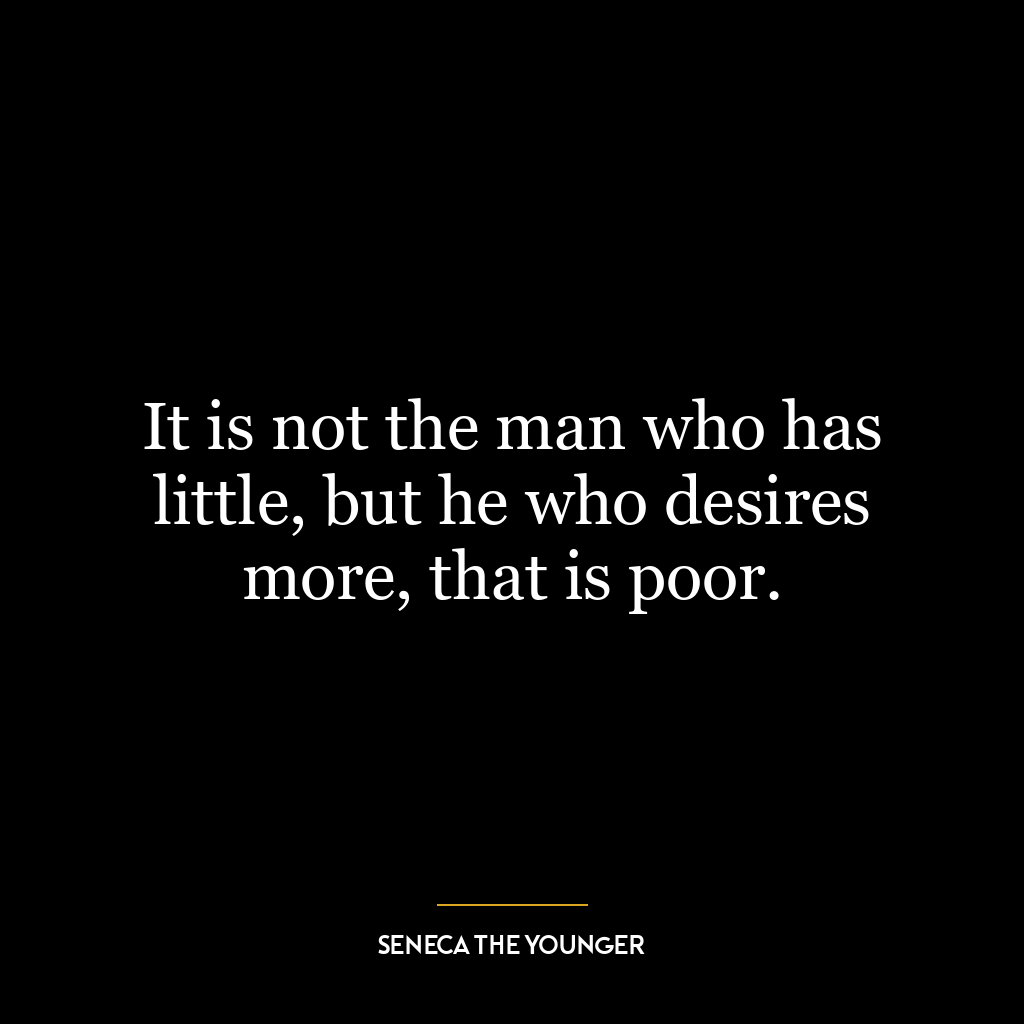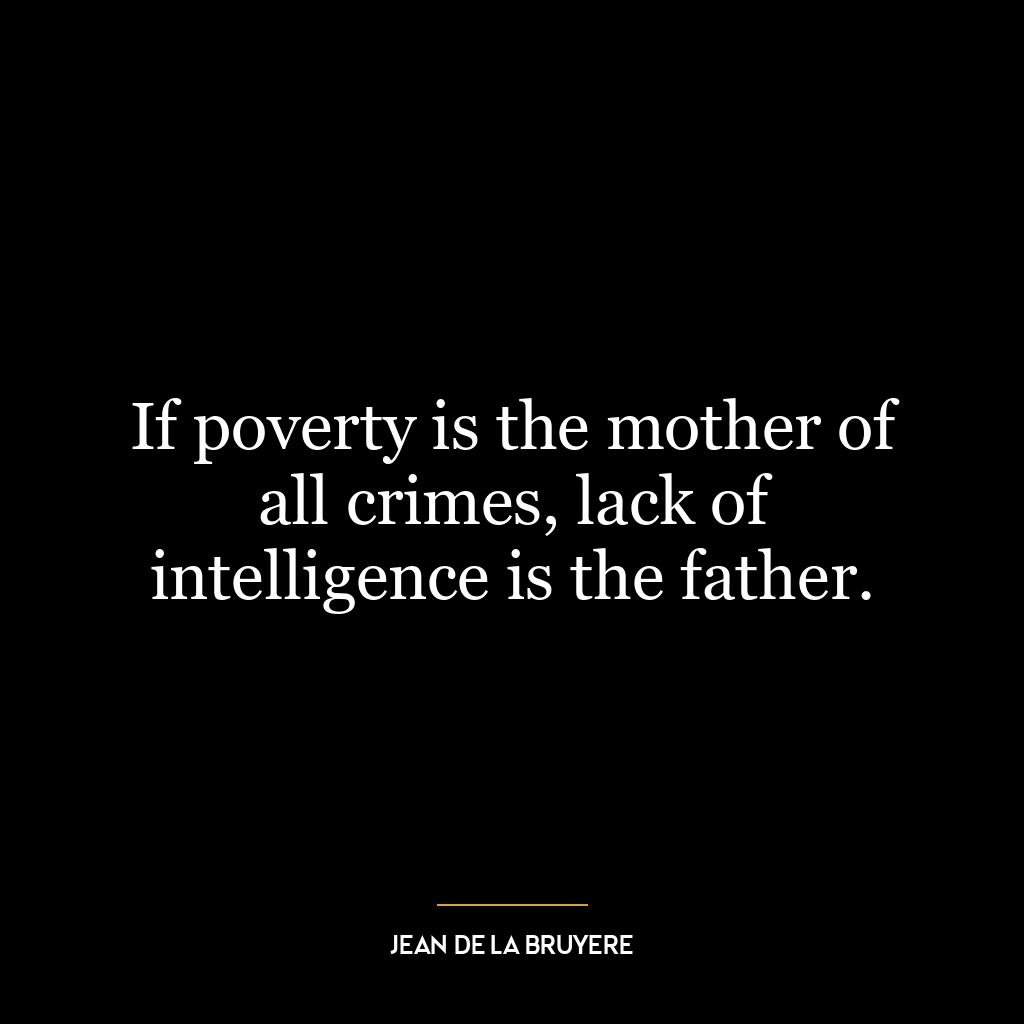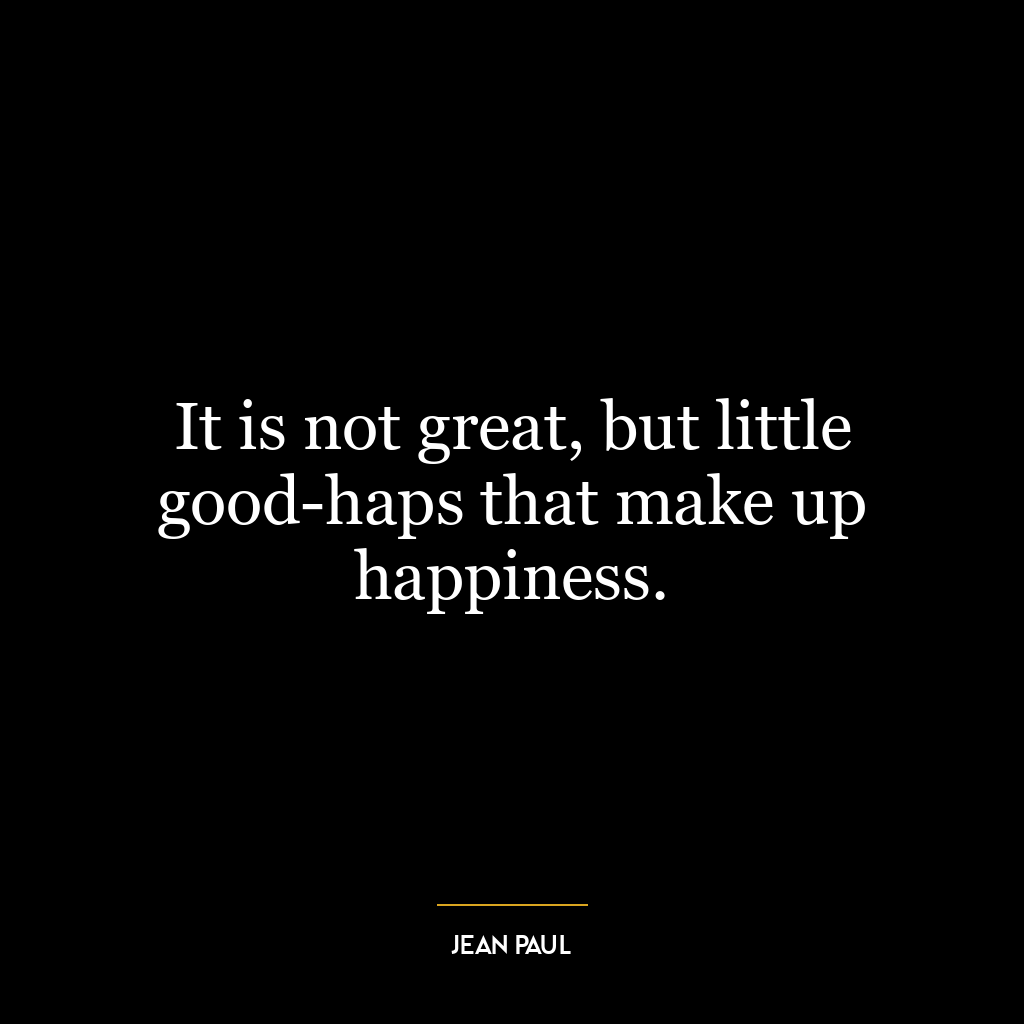It is not the man who has little, but he who desires more, that is poor.
This quote is a profound commentary on the nature of poverty and wealth. It suggests that true poverty does not lie in the lack of material possessions, but in the insatiable desire for more. In other words, a person who has little but is content with what he has is richer than the one who has much but is constantly unsatisfied, always craving for more. The quote underscores the idea that contentment is a key to true wealth.
The quote’s significance is not confined to material wealth. It can be applied to all aspects of life, such as knowledge, relationships, or personal achievements. One can have many friends, for instance, but if they are always seeking more friends, they may not appreciate the ones they already have. Similarly, a person may have achieved much but if they are not content and always strive for more, they may not find happiness in their achievements.
In the context of today’s world, this quote is particularly relevant. We live in a consumer-driven society where we are constantly bombarded with messages that we need more – more money, more possessions, more success. This can lead to a never-ending cycle of desire and dissatisfaction. The quote reminds us that true wealth and happiness lie not in having more, but in appreciating what we have.
In terms of personal development, the quote encourages us to cultivate an attitude of gratitude and contentment. It suggests that we should focus less on what we lack and more on appreciating what we have. This does not mean we should not aspire for more or strive to better ourselves. Rather, it means that in our pursuit of more, we should not lose sight of the value of what we already have. This attitude can lead to greater happiness, satisfaction, and a sense of inner wealth.















